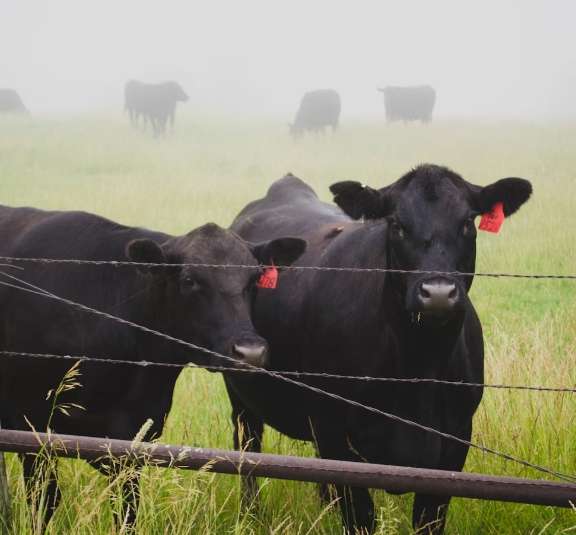Jamaica Intensifies Efforts to Combat Cattle Theft
The Scourge of Praedial Larceny: A Deep Dive into Jamaica’s Agricultural Theft Crisis and the Ongoing Fight for Food Security
Praedial larceny, the theft of agricultural produce and livestock, has long plagued Jamaica’s agricultural sector, posing a significant threat to the livelihoods of farmers and the nation’s food security. This criminal activity disrupts local food supply chains, undermines economic stability, and jeopardizes the overall development of rural communities. The theft of crops, livestock, and other agricultural assets deprives farmers of their hard-earned income, discourages investment in the sector, and ultimately impacts the availability and affordability of food for the entire population. The intricate nature of this crime, often involving organized networks and sophisticated methods, requires a multi-pronged approach to effectively combat it and ensure the sustainability of Jamaica’s agricultural landscape.
Jamaica’s Renewed Offensive Against Agricultural Theft: A Promising Shift in the Battle Against Praedial Larceny
Recent data suggests a positive shift in Jamaica’s ongoing battle against praedial larceny. According to Minister of Agriculture, Fisheries and Mining, Floyd Green, there has been a marked increase in arrests and seizures related to this crime. As of November 2024, 86 individuals were apprehended for praedial larceny, surpassing the total of 78 arrests recorded for the entire year of 2023. This upward trend in arrests indicates a more proactive and effective enforcement strategy. The increased number of cases brought before the courts further underscores the commitment to holding perpetrators accountable. With 150 cases before the courts up to November 2024, compared to 138 in 2023, the justice system is playing a more active role in addressing this pervasive issue. This intensified effort signifies a renewed dedication to protecting farmers’ investments and safeguarding the nation’s agricultural output.
Strengthening the Legal Framework and Empowering Farmers: Key Strategies in Combating Agricultural Theft
The increase in summonses issued, rising from nine in 2023 to 16 in 2024, further demonstrates the strengthening of legal measures against praedial larceny. This proactive approach aims to deter potential offenders and send a clear message that agricultural theft will not be tolerated. The substantial increase in vehicle seizures, more than doubling from eight in 2023 to 19 in 2024, points to a more targeted approach to disrupting the logistical operations of those involved in this illicit trade. The establishment of Farmers’ Watch groups, growing from 107 in 2023 to 162 by December 2024, highlights the importance of community involvement and collaboration in combating praedial larceny. These groups empower farmers to work together, share information, and support law enforcement efforts, creating a more secure environment for agricultural activities.
Enhanced Police Presence and Proactive Measures: Stepping Up Enforcement During the Festive Season and Beyond
Recognizing the vulnerability of farmers during the Yuletide season, the police have intensified their efforts to prevent and address praedial larceny. Superintendent Oral Pascoe, Head of the Praedial Larceny Prevention Coordination Unit, emphasized the increased police presence and road operations across all divisions, including both urban and rural areas. The implementation of heightened stop and search procedures aims to deter potential thieves and disrupt the transportation of stolen agricultural goods. This proactive approach, implemented across various regions, including major agricultural producing areas like St. Elizabeth and St. Mary, seeks to create a more secure environment for farmers during this critical period. The ongoing nature of these efforts underscores the commitment to long-term solutions and sustainable strategies for combating praedial larceny.
The Multifaceted Impact of Praedial Larceny: Understanding the Broad Consequences of Agricultural Theft
The economic impact of praedial larceny extends far beyond the immediate losses suffered by individual farmers. It disrupts the agricultural supply chain, leading to price fluctuations and reduced access to fresh produce for consumers. This, in turn, can impact food security, particularly in vulnerable communities. The social consequences are equally significant. Praedial larceny erodes trust within rural communities, creates fear and insecurity among farmers, and can fuel further criminal activity. The psychological toll on farmers who are victims of this crime cannot be understated. They often experience feelings of violation, frustration, and helplessness, which can have long-term impacts on their well-being and their willingness to continue farming.
The Path Forward: Collaborative Strategies for Sustainable Solutions to Praedial Larceny
Addressing the complex challenge of praedial larceny requires a collaborative and comprehensive approach. Strengthening law enforcement efforts, increasing public awareness, and empowering farmers through community-based initiatives are crucial steps. Improving agricultural infrastructure, such as fencing and security systems, can also deter theft. Implementing robust traceability systems can help track stolen goods and bring perpetrators to justice. Furthermore, addressing the underlying socio-economic factors that contribute to praedial larceny, such as poverty and unemployment, is essential for long-term solutions. By working together, government agencies, law enforcement, farmers, and communities can create a more secure and sustainable agricultural sector in Jamaica.
Share this content:












Post Comment